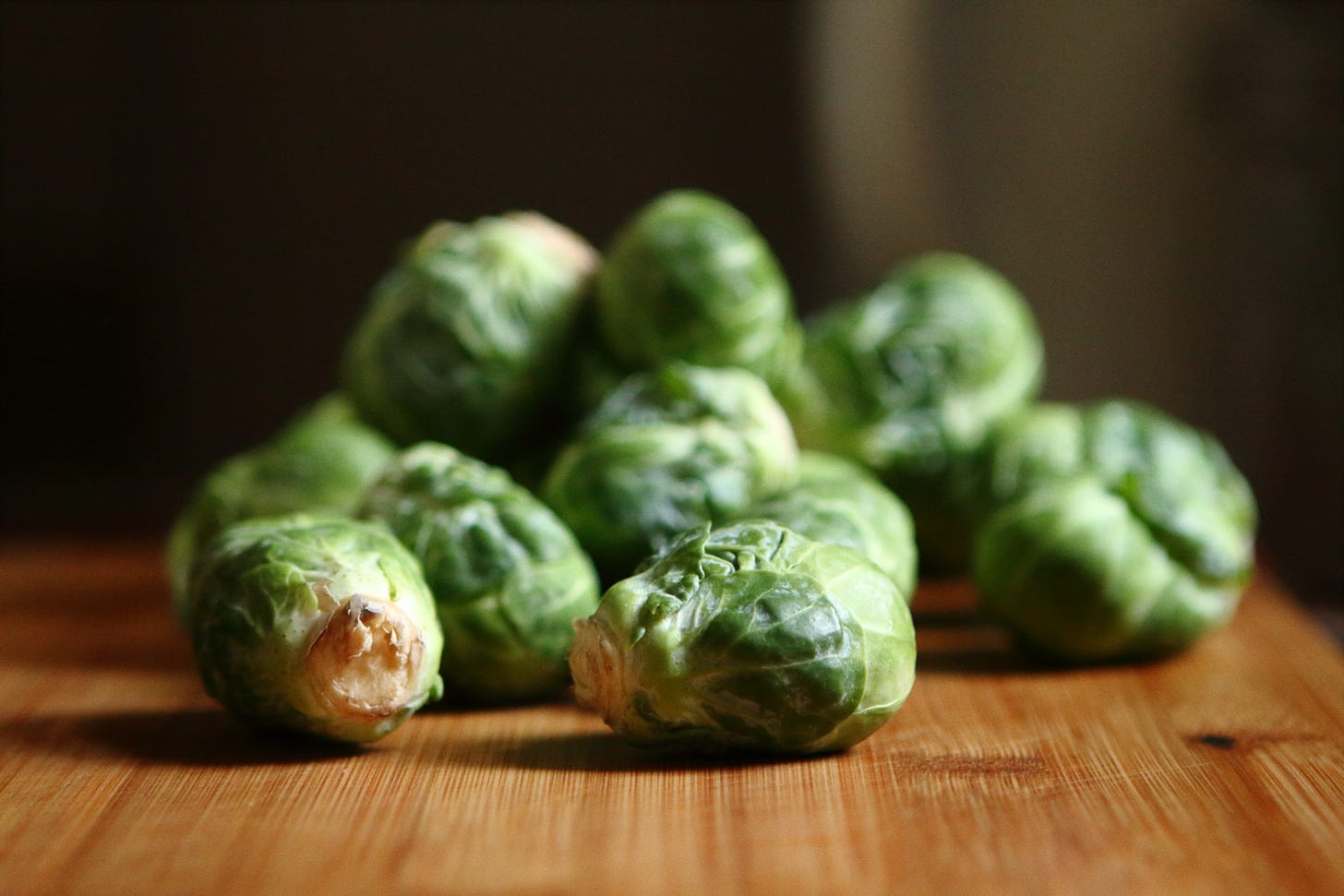Why Food Isn't Neutral
But it is all morally equivalent—so you don't need to earn your right to dessert.
A popular piece of anti-diet parenting wisdom is: “Make all foods neutral.”
I have both given and received this advice many, many times.
And I have recently realized: It’s (a little bit) wrong.
On one level, keeping food neutral makes so much sense, because the classic way that parents give food value is by saying things like “three more bites of broccoli and then you can have dessert.” Many studies—not to mention most of our lived experience as humans—have shown that this gives food the wrong kind of power. In Thursday’s audio newsletter, Melinda Wenner Moyer, author of the soon-to-be-released book How To Raise Kids Who Aren’t Assholes, and I discuss the research of Leann Birch, who showed in several experiments that requiring kids to eat Food A in order to get Food B made them dislike Food A more and eat less of it, than if they were given free access to both foods.
When we make food a reward for eating other foods, dessert becomes extra-coveted, while broccoli is the buzz kill, the barrier to all deliciousness and joy. If you think about any food you were forced to eat as a child, I’m betting you still don’t like it much now, as an adult. (Or if you do, it’s only because you discovered an entirely new way to cook it; roasted Brussels sprouts are basically not even the same food as boiled or steamed.)
“Kids look to adults to figure out what’s important,” explains Melinda. “If we choose to make something a reward, whether that’s screen time or sugar, that’s a really powerful way of telling our kids what matters. We’re saying, sweets and desserts are things they should be obsessed with because that’s what everyone else cares so much about.”

So that’s the easy part. Stop making dessert contingent on eating performance, and you’ll see your kids gradually relax about that, and maybe even like their dinner more.
By extension, as Melinda and I discuss in more detail in the audio edition, it’s a good idea to stop using food as a reward for other kinds of good behavior or decisions. In fact, Melinda makes a strong argument against using rewards of any kind, because the research shows over and over that while rewarding kids can be an effective short-term fix, it gets in the way of their intrinsic motivation to do good things. Rewards-based parenting can teach kids to listen to themselves less, and even trust themselves less, and focus more on pleasing other people, the keepers of those rewards. I saw this play out at perhaps the most extreme level when I reported on behavioral feeding therapy, where kids with severe pediatric feeding disorders and food fears learn to eat not for the innate joy of eating, but in exchange for toys, stickers, or screen time.
I want to underscore that there is a very big difference between training a child to eat in exchange for screen time, and bribing your toddler with M&Ms to use the potty or buying a lollipop so they won’t melt down in the grocery store checkout line. We all do some version of the latter from time to time, when parenting gets rough. It’s useful to consider why it’s not a great idea as your de facto approach, but please do not beat yourself up if and when it happens. Sometimes you’re just in survival mode, and especially if the behavior needed is somewhat rare and/or particularly beyond your child’s current developmental reach (sitting still for a haircut or staying calm on a long plane ride come to mind), then using a reward of any kind feels like a fairly harmless way to achieve this temporary dream.
But I do want to make a distinction between using food as a reward, and using food for comfort. A few weeks ago, one of my children had to have blood drawn. It was rough but we got through it; and as soon as we left the doctor’s office, she asked if we could go to Starbucks for a cake pop. And I said yes, with zero hesitation. The cake pop wasn’t a reward because I would have said yes regardless of how the blood drawn had gone; the food was not contingent on her performance, nor was it a bribe for participation. It was just part of the experience. Indeed, we almost always get a treat after a doctor’s appointment (or, this past year, a Covid test) because I understand needing some comfort after a stressful experience. There are lots of ways to seek comfort, of course, and we want our kids to have multiple self-soothing skills. On this day, she also hugged her teddy bear and read a book on the drive home, then took herself out to play in the backyard for awhile. Nonetheless: Food is a highly effective and efficient coping strategy. And this is a feature, not a bug. Human infants have to eat multiple times a day in order to grow and thrive. That’s a ton of work (for babies and caregivers) and if eating wasn’t inherently comforting and pleasurable, it would be harder and less likely to happen.

The problem with comfort eating is that our culture demonizes it as a “bad” coping strategy. And that’s because of fatphobia: We’re worried that “emotional eating” leads to weight gain. We don’t accept that bodies might change in the face of stress, but that’s also a normal part of human existence. It’s hugely liberating to reject that narrative and allow comfort eating to be one of the coping strategies available to your child, and to you.
But. It doesn’t keep foods neutral.
In a way, that’s because that work comes first. By keeping foods neutral and not classifying them as good and bad, we broaden up the list of foods that might offer us comfort. My daughter chose a cake pop for that particular comfort snack because it was at hand, but she also has comforting associations with favorite family meals like pesto pasta, or with the strawberries we grow in our garden. I’ll grant that it’s difficult to imagine a child tearfully requesting eggplant or broccoli after a stressful doctor’s appointment. But maybe that’s okay. We can let foods play different roles in our life as long as the value we place on those roles is morally equivalent. We get off track when we decide that nutrient-dense foods like vegetables are morally superior to comfort-dense foods like cake. We actually need some of both to live well.
ALSO
Stay tuned: Lots more discussion of using rewards with kids, as well as how to think about kids and physical activity and kids and gender roles, with Melinda Wenner Moyer in this Thursday’s subscriber-only audio newsletter. Consider a paid subscription so you don’t miss out!
Fact-checked: My dad read last week’s essay on reclaiming Diet Coke and would like it stated for the record that he “did not go to Diet Coke chiefly for diet/weight reasons. It was dental. I had a lot of dental issues in the 1980s.” He does, however, confirm the veracity of all other Coke-related family legends. “Diet Coke is good for the soul,” he writes. “Caffeine-free Diet Coke is good for restful nights.” I assume that’s why he put it in baby bottles.




I struggle hard with balancing education about the nutritional benefits of broccoli vs. Lays Stax (my 11 year old's current obsession) with not making eating sweets contingent on eating "strong" food. I struggle and that's why your newsletter is so helpful.